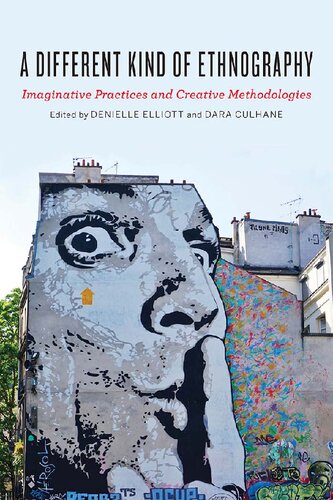

Most ebook files are in PDF format, so you can easily read them using various software such as Foxit Reader or directly on the Google Chrome browser.
Some ebook files are released by publishers in other formats such as .awz, .mobi, .epub, .fb2, etc. You may need to install specific software to read these formats on mobile/PC, such as Calibre.
Please read the tutorial at this link: https://ebookbell.com/faq
We offer FREE conversion to the popular formats you request; however, this may take some time. Therefore, right after payment, please email us, and we will try to provide the service as quickly as possible.
For some exceptional file formats or broken links (if any), please refrain from opening any disputes. Instead, email us first, and we will try to assist within a maximum of 6 hours.
EbookBell Team

0.0
0 reviewsConceptualizing ethnography as a critical process of inquiry that is at once empirical & theoretical, the authors organize their thoughts around five key methodologies: sensing, walking, writing, performing, & recording. They also integrate more traditional methods like participant observation, interviewing, & documentary research. Each chapter includes practical exercises, a list of further resources, & links to online materials that can help encourage a more imaginative & creative methodology.
Contents:
Imagining: An Introduction by Dara Culhane
Writing by Denielle Elliott
Sensing by Dara Culhane
Recording & Editing by Alexandrine Boudreault-Founier
Walking by Cristina Moretti
Performing by Magda Kazubowksi-Houston
Dara Culhane received her Ph.D. in 1994 & teaches anthropology at Simon Fraser University. From 1992 to 1994, she was Deputy Director of Social & Cultural Research for the Royal Commission on Aboriginal Peoples. Her first book, An Error in Judgement, probes the controversial 1979 death of a First Nations child who died of an undiagnosed ruptured appendix in Alert Bay, B.C. She continued her work with The Pleasure of the Crown, which offers an in-depth analysis of Aboriginal title litigation in British Columbia & examines the cultural values & biases of the courts from an anthropologist’s point of view. Culhane’s research has also appeared in BC Studies, Native Studies Review & The Journal of Human Justice.